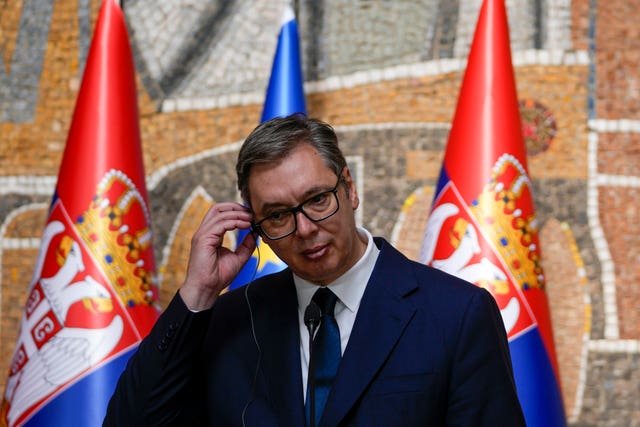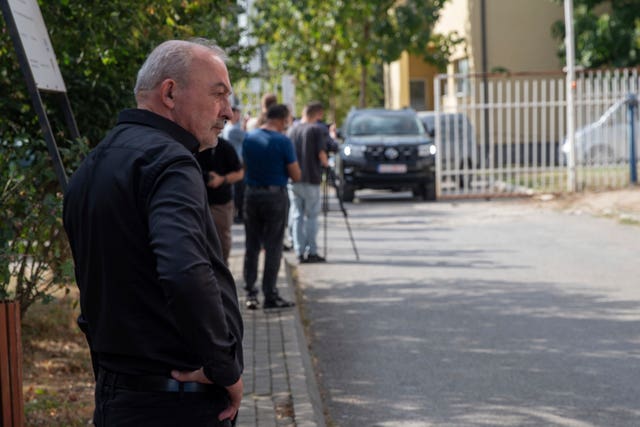A Serbian court has released a Kosovo Serb leader who has been linked to a clash with Kosovo security forces in which four people died, sending tensions soaring in the volatile region.
Milan Radoicic, a politician and wealthy businessman with ties to Serbia’s ruling populist party and President Aleksandar Vucic, was detained in Belgrade on Tuesday.
He is suspected of leading a group of some 30 heavily armed Serb insurgents who ambushed and killed a Kosovo policeman on September 24, triggering a gunfight in a northern Kosovo village that also left three paramilitaries dead.
Kosovo has accused Serbia of orchestrating the “act of aggression” against its former province whose 2008 declaration of independence Belgrade does not recognise.

Serbia has denied this, saying that Radoicic and his group acted on their own.
A Belgrade judge on Wednesday ignored a public prosecutor’s call that Radoicic be kept in custody because he could flee, and ruled that he was banned from leaving Serbia.
He should also report to the authorities twice a month pending a trial, the judge said.
Prosecutors have said Radoicic is suspected of a criminal conspiracy, unlawful possession of weapons and explosives and grave acts against public safety.
They said Radoicic got weapons delivered from Bosnia to Belgrade before stashing them in “abandoned objects and forests” in Kosovo.
Radoicic denied the charges although earlier admitted being part of the paramilitary group involved in the gunfight.
He was a deputy leader of the Serbian List party in Kosovo, which is closely linked with Mr Vucic’s Serbian Progressive Party. He is known to own large properties both in Serbia in Kosovo, and has been linked by investigative media to shady businesses.

European Union and US officials have demanded from Serbia that all the perpetrators of the attack, including Radoicic, be brought to justice.
Radoicic, 45, has been under US and British sanctions for his alleged financial criminal activity.
Serbia has said it has withdrawn nearly half of its army troops from the border with Kosovo, after the United States and the EU expressed concern over the reported build-up of men and equipment and threatened sanctions.
The flare-up in tensions between Serbia and Kosovo has fuelled fears in the West that the volatile region could spin back into instability that marked the war years in the 1990s, including the 1998-99 war in Kosovo.
That conflict ended with Nato bombing Serbia to stop its onslaught against separatist ethnic Albanians.
Belgrade has never agreed to let go of the territory, although it has not had much control over it since 1999.
